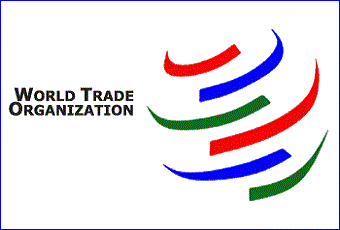Some basic info to understand this news better:
- Intellectual property (IP) is a legal term that refers to creations of the mind. Examples of intellectual property include music, literature, and other artistic works; discoveries and inventions; and words, phrases, symbols, and designs. Under intellectual property laws, owners of intellectual property are granted certain exclusive rights.
- The U.S. had been concern over the level of protection India affords to its companies and the intellectual property rights (IPR) regime in India. The US raised concerns around counterfeiting, piracy and Pharma. The US has been threatening to downgrade India to “priority foreign country” —a category of serious offenders that could invite US sanctions, from India’s current status of “priority watch” list.
Now, the news:
- India’s intellectual property rights (IPR) regime, under constant attack from the US and multinational companies (MNCs) over the past few years, has been given a clean bill of health by the World Trade Organisation (WTO).
- The last review of India’s policies took place in September 2011—it happens every four years for developing countries—and the current review looked at developments since then. This is significant because the intense lobbying and fierce campaign against India’s patent regime has escalated in the same period.
- In the case of India, the issue has been blown out of proportion with business lobbies claiming that the country had issued several CLs to manufacture patented drugs. It was significant, therefore, that the WTO review report laid such lies to rest by emphasising that “in March 2012, India issued its first and only CL” on a cancer medicine. This is not a small matter since American business and trade lobbies, through their Goebbelsian propaganda, have made the US Congress believe that India is a habitual user of CLs to override patents..
- As for the controversial Section 3(d) of the Patent Act, WTO points out that the Supreme Court of India has said very clearly that it does not bar patent protection for all incremental inventions of chemical and pharmaceutical substances.
Know more on this news topic:
- CL or Compulsory License provides that the owner of a patent or copyright licenses the use of their rights against payment either set by law or determined through some form of arbitration. In essence, under a compulsory license, an individual or company seeking to use another’s intellectual property can do so without seeking the rights holder’s consent, and pays the rights holder a set fee for the license. In March 2012, India granted its first compulsory license ever. The license was granted to Indian generic drug manufacturer Natco Pharma Ltd for Sorafenib tosylate, a cancer drug patented by Bayer.
- The Agreement on Trade-Related Aspects of Intellectual Property Rights (TRIPS) is an international agreement administered by the World Trade Organization (WTO) that sets down minimum standards for many forms of intellectual property (IP) regulation as applied to nationals of other WTO Members
AffairsCloud Recommends Oliveboard Mock Test
AffairsCloud Ebook - Support Us to Grow
Govt Jobs by Category
Bank Jobs Notification





